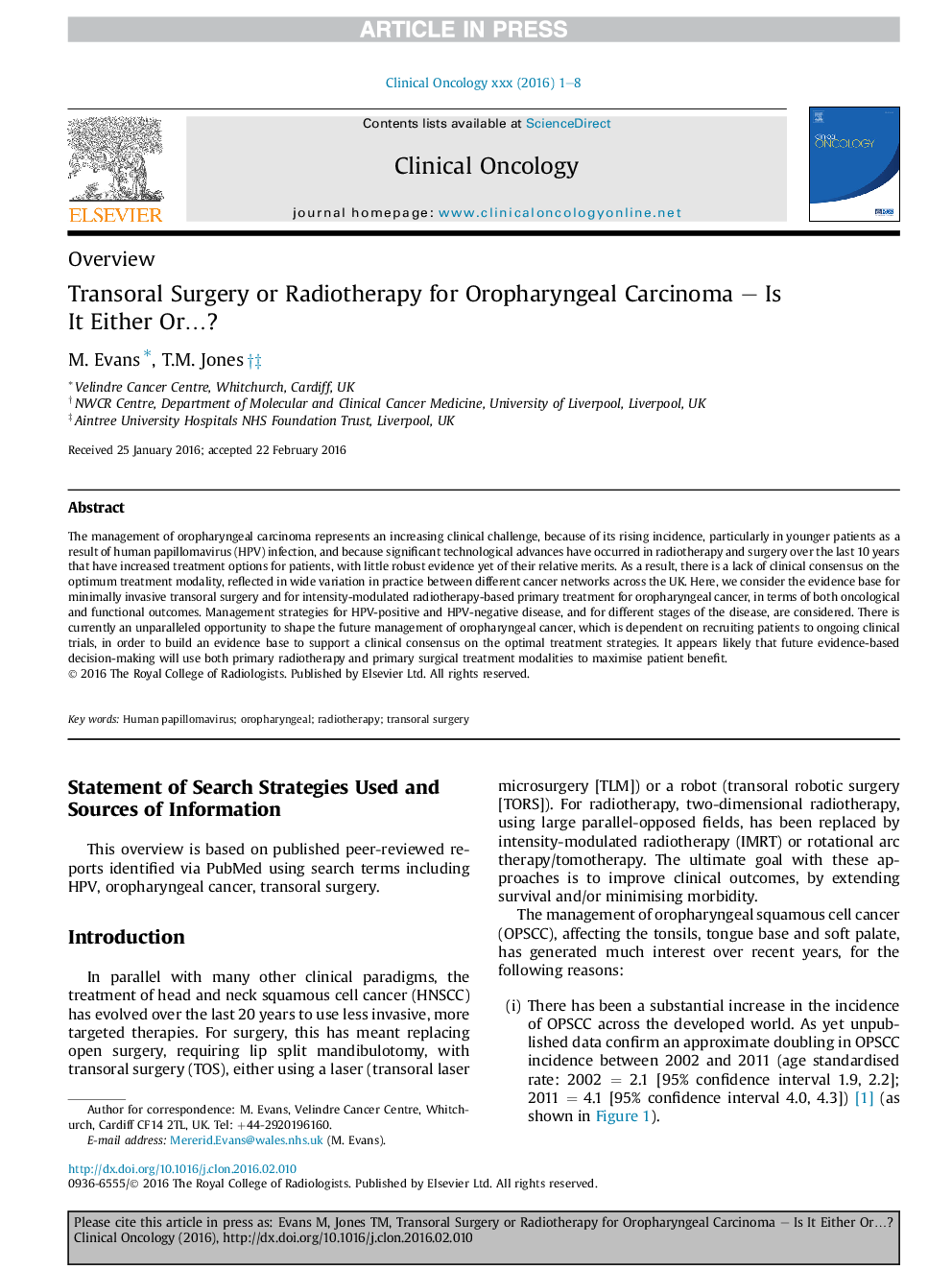| Article ID | Journal | Published Year | Pages | File Type |
|---|---|---|---|---|
| 5697986 | Clinical Oncology | 2016 | 8 Pages |
Abstract
The management of oropharyngeal carcinoma represents an increasing clinical challenge, because of its rising incidence, particularly in younger patients as a result of human papillomavirus (HPV) infection, and because significant technological advances have occurred in radiotherapy and surgery over the last 10 years that have increased treatment options for patients, with little robust evidence yet of their relative merits. As a result, there is a lack of clinical consensus on the optimum treatment modality, reflected in wide variation in practice between different cancer networks across the UK. Here, we consider the evidence base for minimally invasive transoral surgery and for intensity-modulated radiotherapy-based primary treatment for oropharyngeal cancer, in terms of both oncological and functional outcomes. Management strategies for HPV-positive and HPV-negative disease, and for different stages of the disease, are considered. There is currently an unparalleled opportunity to shape the future management of oropharyngeal cancer, which is dependent on recruiting patients to ongoing clinical trials, in order to build an evidence base to support a clinical consensus on the optimal treatment strategies. It appears likely that future evidence-based decision-making will use both primary radiotherapy and primary surgical treatment modalities to maximise patient benefit.
Related Topics
Health Sciences
Medicine and Dentistry
Oncology
Authors
M. Evans, T.M. Jones,
